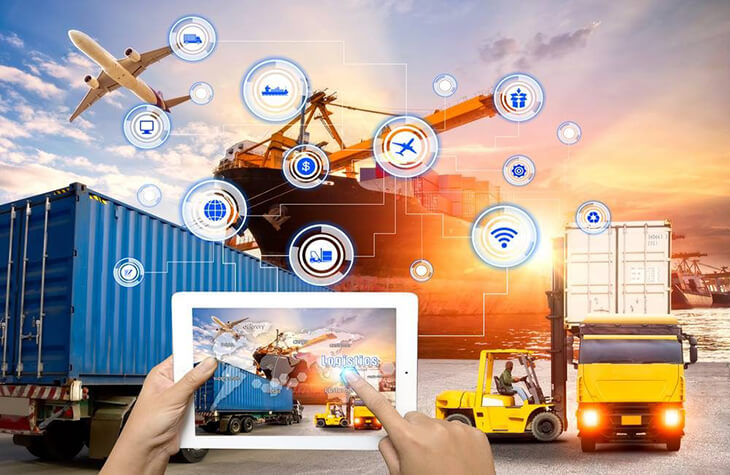
How AI Is Revolutionizing Transportation and Logistics (And Why It’s a Game-Changer)
7 months ago
How AI Is Revolutionizing Transportation and Logistics (And Why It’s a Game-Changer)

Artificial intelligence (AI) is poised to tackle some of the most pressing challenges in the transportation industry, including workforce shortages, escalating fuel and equipment costs, and supply chain disruptions. As AI rapidly transforms the transportation and logistics sectors, its impact is overwhelmingly positive.
Transportation companies operate in a complex environment, managing extensive vehicle fleets and navigating intricate supply chains to ensure timely deliveries that keep the economy moving. In this increasingly uncertain regulatory and business landscape, AI is emerging as an essential tool for businesses seeking to enhance efficiency, achieve growth, and secure long-term success.
It's crucial to understand that AI is not here to replace human decision-making but to enhance it. By providing actionable insights from data, AI empowers fleet managers to make smarter decisions. Whether it's forecasting demand, optimizing routes, or predicting maintenance needs, AI algorithms analyze historical and real-time data to anticipate future trends and identify areas for improvement.
AI enables businesses to navigate complexities by offering a comprehensive view of operations and facilitating data-driven decisions. For example, AI can simulate various scenarios to predict the impact of factors like fuel price fluctuations or supply chain disruptions, helping companies develop contingency plans and mitigate risks effectively.
Moreover, AI assists carriers in managing unforeseen challenges that arise from operational decisions. Improved routing, for instance, can enhance overall efficiency, but for refrigerated carriers, it might lead to increased thermal abuse due to more frequent trailer door openings. Predictive data from AI, combined with tools like two-way reefer controls, allows fleet managers to adjust operations before temperature issues occur.
By harnessing AI's processing power to support human decision-making, businesses can successfully navigate the complexities of today's market, stakeholder demands, evolving regulations, and more.
Here are several ways AI is helping transportation businesses operate more safely, efficiently, and profitably:
1. Route Optimization: Traditional route planning often fails to account for real-time variables such as traffic conditions, sudden weather changes, or unexpected road closures. AI processes vast amounts of data to anticipate and adapt to these variables, ensuring routes are continuously optimized for efficiency and safety. This leads to reduced fuel consumption, more accurate delivery times, and less vehicle wear and tear, ultimately lowering maintenance costs.
2. Predictive Maintenance: Regular maintenance is key to running a safe and cost-effective fleet. AI can elevate maintenance programs from being merely proactive to predictive. By analyzing data from sensors embedded in vehicles, AI can predict potential failures before they happen. This predictive approach enhances vehicle reliability, extends lifespan, and reduces repair costs, keeping operations running smoothly.
3. Safety Enhancements: Safe fleets are successful fleets, and AI plays a crucial role in improving safety. AI-powered advanced driver-assistance systems (ADAS) provide real-time alerts and interventions to prevent accidents. These systems can detect hazards, monitor driver behavior, and even take control of the vehicle if necessary to avoid collisions. AI-powered video telematics systems also analyze driver performance, enhancing coaching programs and reducing risky driving behaviors.
4. Cold Chain Assurance: In cold chain logistics, AI is becoming increasingly vital in ensuring product quality and compliance. By transforming the vast amounts of data generated by vehicles and assets into actionable insights, AI is revolutionizing the transport of perishables. Real-time temperature monitoring, elimination of manual checks, anomaly detection, and predictive maintenance all contribute to continuous improvement in product integrity and regulatory compliance.
5. Supply Chain Efficiency: Beyond transforming individual transportation aspects, AI is enhancing efficiency across the entire supply chain. Integrating AI into logistics management optimizes warehouse operations, streamlines inventory management, and improves last-mile delivery. AI-powered robotics and automation systems in warehouses handle tasks such as sorting, packing, and inventory tracking with remarkable speed and accuracy.
The Future of AI in Transportation
Today, AI helps carriers make sense of vast data sets, enabling better operational decisions. In the future, AI may take on more decision-making tasks—under human oversight and within defined safety boundaries—such as automating routine activities like maintenance scheduling, vehicle routing, and pre-cooling reefer trailers. AI holds immense potential to address broader industry challenges, including workforce shortages, rising operational costs, and ongoing supply chain issues.
Source: SDC Executive